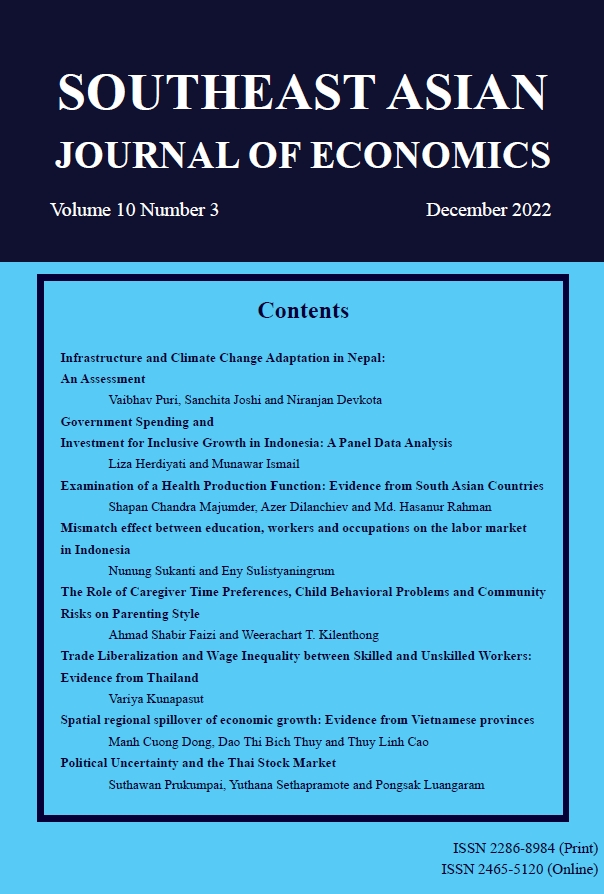Trade Liberalization and Wage Inequality between Skilled and Unskilled Workers: Evidence from Thailand
Keywords:
trade reforms, trade liberalization, wage inequality, wage premiums, income distributionAbstract
This paper addresses distributive issues as a result of trade liberalization reforms that occurred in Thailand after it joined the WTO in 1995. The analysis will exploit the concept of industry wage premiums and how skilled and unskilled workers are allocated between industries by using two-stage regressions. We find that the episode of trade reforms that occurred in Thailand increased industry wage premiums overall. The effects are weak but statistically significant for both skilled and unskilled workers. The paper also suggests no improvement in the income gap between skilled and unskilled laborers in Thailand after trade reforms as skilled workers benefited relatively more during this period. The results can be explained by the ‘skill-enhancing trade’ hypothesis.
Downloads
Published
How to Cite
Issue
Section
License

This work is licensed under a Creative Commons Attribution-NonCommercial-NoDerivatives 4.0 International License.
The submission of a manuscript implies that the paper is an original work and has not been published elsewhere. The author(s) authorize the journal to reproduce or distribute the paper in printed or other electronic forms.







